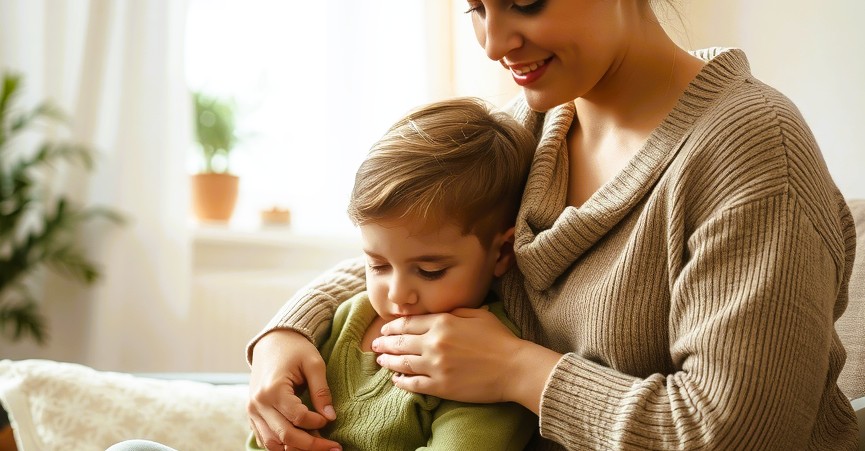The Impact of Divorce on Children: How to Help Your Kids Adjust
As a parent navigating the ending of a marriage, it’s natural to worry about how the transition will affect your children’s well-being. As a parent, your instinct is to protect your children from pain. But during separation, it can feel like their world is shifting beneath their feet.
The truth is that every child reacts differently to divorce. Some may become quiet and withdrawn, others may act out, and many are just trying to make sense of a situation they didn’t choose.
At Brown Family Law in Idaho, we understand that your role as a parent doesn’t end when your marriage does. While there’s no perfect roadmap, there are steps you can take to help your kids adjust in healthy, age-appropriate ways. In this article, we’ll explore the impact divorce can have on children and offer guidance on how to handle the situation with empathy, stability, and care.
Understanding the Emotional, Psychological, and Social Impact of Divorce on Children
The way children experience divorce depends on many factors: their age, personality, the nature of the divorce, and the amount of support they receive from their parents.
Some children adjust well, while others may face significant challenges. Let’s delve into some of the common ways divorce can affect children.
Emotional distress
Many children experience intense emotions during and after a divorce, including:
- Sadness
- Anger
- Confusion
- Guilt
- Anxiety
Young children may not fully understand what is happening and may fear abandonment. Older children and teens may feel torn between loyalty to both parents or angry at the disruption in their family.
Behavioral issues
Some children may react to divorce with changes in behavior, such as:
- Acting out at school
- Becoming withdrawn
- Developing sleeping problems
- Regressing to younger behaviors (e.g., bedwetting, clinginess)
These behaviors are often expressions of emotional turmoil and insecurity.
Academic challenges
Divorce can affect concentration, motivation, and academic performance. Children may be distracted by their family situation or miss school due to logistical complications in custody arrangements.
Changes in social behaviors
Kids may struggle with forming or maintaining friendships during the emotional upheaval of divorce. Children may feel embarrassed or different from their peers, especially if only a few of their friends have divorced parents.
Long-term psychological impact
Research suggests that while some children adjust over time, some may experience long-term effects. This is especially true of high-conflict families.
Long-term effects may include:
- Depression
- Anxiety
- Difficulty with future relationships
Loyalty conflicts
Children may feel pressure to take sides or may be influenced by one parent to reject the other — this is known as parental alienation. This dynamic can be incredibly damaging and often leads to a strained relationship with the alienated parent.
How Divorce Impacts Infants and Toddlers (0–3 Years)
Young children do not fully understand the concept of divorce, but they are acutely aware of emotional tension and changes in routine. Disruption in attachment and caregiving consistency can cause distress.
Signs of distress include:
- Increased irritability or clinginess
- Sleep disturbances
- Feeding or toilet regressions
Parents can help by:
- Maintaining consistent routines and caregivers
- Keeping transitions smooth and predictable
- Providing extra comfort and physical affection
- Avoiding arguments in front of your children, even if they don’t understand the words
How Divorce Impacts Preschoolers (3–5 Years)
Preschoolers may believe they caused the divorce due to their limited ability to grasp cause and effect. This thinking can lead to guilt, confusion, and fear of abandonment.
Some signs of distress are:
- Regressing to earlier behaviors
- Increased separation anxiety
- Aggressive behavior or frequent tantrums
How to help:
- Offer simple, honest explanations without blaming the other parent
- Reassure your child that he or she is loved and not responsible
- Use books and stories to help him or her understand and process feelings
- Keep routines as consistent as possible across both households
How Divorce Impacts Elementary Age Children (6–12 Years)
Children at this age have a clear understanding of divorce and may feel sadness, anger, or a desire to “fix” the situation. They may struggle with loyalty conflict, feeling caught between two parents.
Signs of distress may be:
- Decline in school performance
- Physical complaints (stomachaches, headaches)
- Withdrawal from friends or activities
- Acting out or taking sides
Parents can help by:
- Encouraging open dialogue about their honest feelings without judgment
- Collaborating with teachers and counselors to monitor changes
- Establishing and enforcing consistent rules in both homes
How Divorce Impacts Young Adults (13–18 Years)
Teenagers are more capable of understanding complex emotions and may respond with anger, skepticism, or emotional distance. They may question their own beliefs about relationships and feel the need to take sides or become caretakers for younger siblings.
Signs of distress include:
- Risk-taking behavior (e.g., substance use, skipping school)
- Depression or anxiety
- Withdrawal from family
- Expressing cynicism about love and relationships
Some ways to help your children are:
- Respecting their need for independence while staying emotionally available
- Validating their feelings without pushing for conversation
- Seeking therapy if signs of depression or anxiety persist
- Refraining from leaning on them for emotional support — let them be kids
The Importance of Open Communication With Your Child
One of the most effective ways to support children during separation or divorce is through honest, age-appropriate communication. Children have questions about what’s happening and what it means for their lives. Avoiding these important conversations can leave them feeling confused and insecure.
How to communicate effectively:
- Be honest but sensitive: Explain that divorce is a decision made by adults, but emphasize that it’s not the child’s fault
- Validate their emotions: Let your children know it’s okay to feel upset or angry. Create a safe space for them to share those feelings
- Avoid blaming the other parent: Speaking negatively about your co-parent can put your children in a difficult emotional position
- Reassure children of your love and commitment to them: Remind your children that both parents will continue to love and care for them
Open communication helps children feel more secure and involved, reducing uncertainty and fear.
How Consistent Routines Benefit Your Children
Most children experiencing parental separation often feel like their world is shifting dramatically. One of the best ways to provide stability is by maintaining consistent routines.
Routines provide:
- Predictability: Knowing what to expect day to day gives your children a sense of control and safety
- Structure: Scheduled bedtimes, meals, and activities help reduce chaos and anxiety
- Continuity: Keeping some routines the same — such as weekend activities or nightly reading — reassures children that not everything is changing
What if, in your family, custody arrangements change weekly? You and your ex can work together to mirror routines across homes. This may include homework schedules, screen time rules, and bedtimes.
This consistency helps children adapt more smoothly and reduces behavioral disruptions.
Keep Conflict Away From Your Children
Perhaps the most important rule during a divorce is to shield your children from parental conflict. Arguments, name-calling, or even subtle hostility can make children feel insecure, torn between loyalties, or emotionally distressed.
Tips to reduce conflict exposure:
- Never argue in front of your children
- Avoid making negative comments about the other parent in your children’s presence
- Do not use your child as a messenger or a mediator
- Communicate with your co-parent respectfully and privately
By fostering a civil co-parenting relationship, you help create a stable environment in which your child can thrive, even amidst family change.
Encourage Expressions of Feelings
Children of divorce may struggle to articulate their emotions. They may try to suppress them to avoid having their parents fight more. As a parent, it is important to create a safe space for your kids to talk about how they feel.
Here are some ways you can encourage your children to express their feelings:
- Reassure your child that it is okay to feel sad, angry, or confused
- Use age-appropriate language to invite conversation (For example, “It seems like you’re feeling upset lately. Do you want to talk about it?”)
- Listen actively without judgment or interruption
- Validate your children’s feelings
- Consider involving a child therapist or counselor who specializes in divorce-related issues
Helping your child express his or her emotions is essential for long-term emotional development and having healthy relationships in the future.
How Counseling Benefits Children After Their Parents’ Divorce
It may be beneficial to get professional help for your family after separation and divorce. Therapy and counseling provide a safe, neutral environment where children can express their feelings and learn healthy coping skills.
Here’s how mental health professionals can make a positive difference:
-
- Process emotions in a safe space: Therapists are trained to help children understand and vocalize their emotions. For most children, having someone outside the family to talk to can be a major relief. It gives them space to say things they might not feel comfortable sharing with their parents.
- Help children manage strong emotions: Mental health therapists can guide children to develop healthy coping strategies for their emotions. Through techniques like play therapy and cognitive behavioral therapy, children can begin to understand and manage their emotional responses.
- Strengthen parent-child relationships: Family or joining sessions may be recommended to rebuild trust and improve communication. Counselors often work with parents as well and can offer guidance on how to talk to children about the divorce and support them through the transition.
- Prevent long-term emotional issues: Without intervention, unresolved feelings of abandonment, guilt, or resentment can follow a child into adulthood. Therapy helps address these concerns early, reducing the risk of long-term emotional or behavioral issues.
Be Present and Attentive
As a parent, your presence and attentiveness during this time are essential to reducing your children’s stress. Kids need to feel that they are loved, heard, and supported.
Here are some ways you can make that happen:
- Spend quality time together: Make an effort to spend intentional time with your children, doing activities they enjoy. This reinforces your bond and reassures them that they are still your priority.
- Watch for warning signs: Pay attention to shifts in behavior, sleep, appetite, or academic performance. These can be signs that your children are struggling and may need extra support from a counselor or therapist.
- Model healthy coping: Children often mirror their parents’ emotional responses. Try to model resilience, self-care, and optimism. It’s okay to be honest about your own feelings as long as you do so in a way that doesn’t burden your children.
Brown Family Law in Idaho Can Offer Support and Legal Guidance
At Brown Family Law, we understand that divorce is not just a legal process. It is a deeply personal and emotional transition, especially when children are involved. That’s why we take a compassionate, child-focused approach in every case we handle.
If you’re navigating divorce and want to protect your child’s well-being along the way, we’re here to guide you through it with clarity, care, and experience. Our family law attorneys work diligently to minimize conflict and support positive co-parenting arrangements.
Your child’s future matters. Let us help you protect it. Call us at 208-987-7005 or complete the contact form, and someone will reach out to you shortly.





